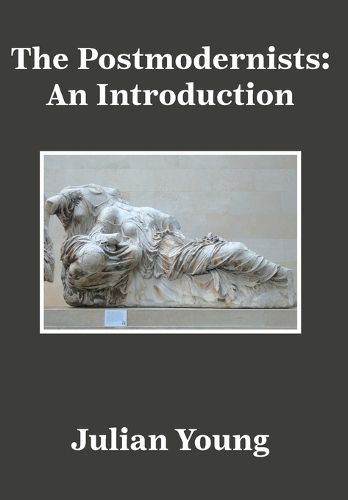Readings Newsletter
Become a Readings Member to make your shopping experience even easier.
Sign in or sign up for free!
You’re not far away from qualifying for FREE standard shipping within Australia
You’ve qualified for FREE standard shipping within Australia
The cart is loading…






What is postmodern - postmodernism as philosophy - and what should we think of it? The first eight chapters of Julian Young's new book examine the thought of key postmodernist philosophers: Lyotard, Deleuze, Foucault, Baudrillard, Derrida, Vattimo, Richard Rorty, and Judith Butler. In the final chapter, he turns to the question of what makes them all "postmodernists." His conclusion is that postmodernism is best thought of as the combination of two elements: a "practical principle" and a "theoretical principle." The practical principle is the claim that the Western ethical tradition is collapsing, and that since it is permeated by exclusionary and oppressive "binaries" that present white, heterosexual men as excellent human beings and everyone else as inferior, this is a good thing that we should further promote. The theoretical principle is the claim that there is no such thing as objective truth. Both principles, Young shows, are motivated by a radical political project: the abolition of the West as a cultural entity. But both propositions, he argues, are false. The practical principle is false because though the Western tradition is indeed fragmenting, this is a process we need to resist rather than encourage. The theoretical principle is false, among other reasons, because the postmodernists contradict themselves in multiple ways in asserting it. These conclusions matter, Young argues, because although academia lost interest in postmodernism at the end of the last century, it lives on as the ideology of the so-called social justice movement that has redefined what it means to be "on the left."
$9.00 standard shipping within Australia
FREE standard shipping within Australia for orders over $100.00
Express & International shipping calculated at checkout
Stock availability can be subject to change without notice. We recommend calling the shop or contacting our online team to check availability of low stock items. Please see our Shopping Online page for more details.
What is postmodern - postmodernism as philosophy - and what should we think of it? The first eight chapters of Julian Young's new book examine the thought of key postmodernist philosophers: Lyotard, Deleuze, Foucault, Baudrillard, Derrida, Vattimo, Richard Rorty, and Judith Butler. In the final chapter, he turns to the question of what makes them all "postmodernists." His conclusion is that postmodernism is best thought of as the combination of two elements: a "practical principle" and a "theoretical principle." The practical principle is the claim that the Western ethical tradition is collapsing, and that since it is permeated by exclusionary and oppressive "binaries" that present white, heterosexual men as excellent human beings and everyone else as inferior, this is a good thing that we should further promote. The theoretical principle is the claim that there is no such thing as objective truth. Both principles, Young shows, are motivated by a radical political project: the abolition of the West as a cultural entity. But both propositions, he argues, are false. The practical principle is false because though the Western tradition is indeed fragmenting, this is a process we need to resist rather than encourage. The theoretical principle is false, among other reasons, because the postmodernists contradict themselves in multiple ways in asserting it. These conclusions matter, Young argues, because although academia lost interest in postmodernism at the end of the last century, it lives on as the ideology of the so-called social justice movement that has redefined what it means to be "on the left."